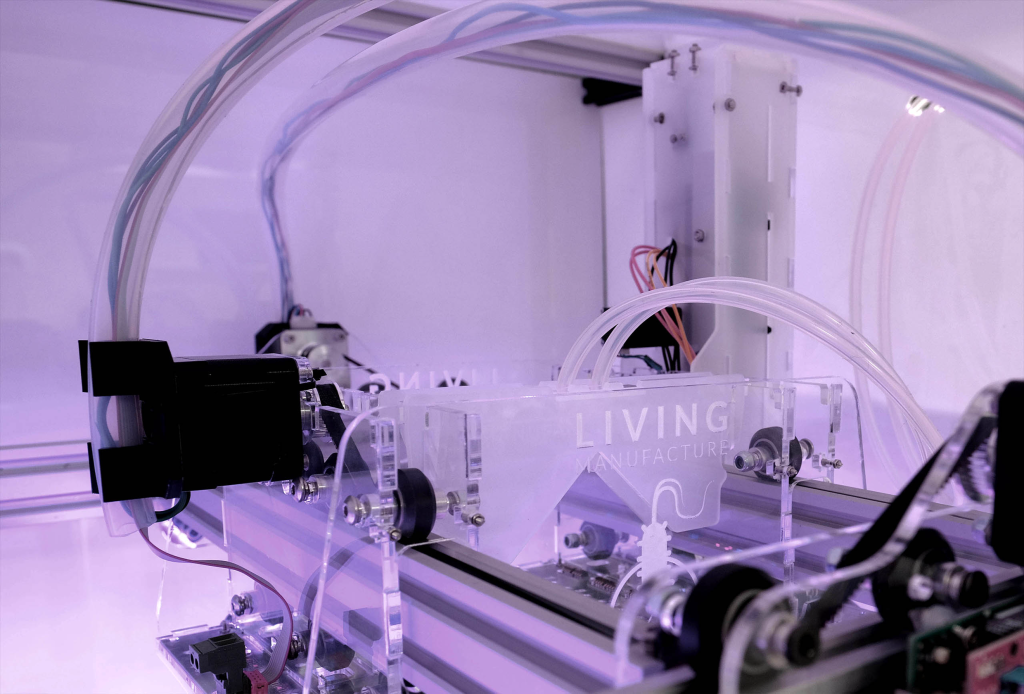Martyn Dade Robertson, Meng Zhang, Thora Arnardottir, Josh Loh, Katie Gilmour, Sunbin Lee
The Living Manufacture project is a collaboration between architects and bio-scientists to build a new Engineered Living Fabrication (ELF) system. The project aims to develop a novel digital manufacturing approach by integrating biological growth and digital fabrication to make 3D functionally graded materials and objects. We see this work as the basis of a new fabrication technique combining wetware, hardware and software with potential applications in various areas, including biomedical applications, complex composites for high-performance manufacturing and novel consumer products.
The wetware aspect involves exploring biological modifiers such as engineered optogenetic E. coli that produce pigment from exposure to light. The ELF platform utilises hardware to optimise bacterial cellulose (BC) pellicle growth through a custom-made fermenter design and automated nutrient feeding that can yield over 8 cm of homogenous pellicle material. It uses an open-source liquid handling robot with simulation software to model inputs, biofilm formation, and growth dynamics that aims to enable precise chemical stimuli delivery and real-time pellicle height monitoring as the material grows.
By combining these three elements – wetware, hardware, and software, the project creates an innovative approach to modify the BC growth and material properties without the need for post-processing.

Institutions: Northumbria University & Newcastle University
Funding: EPSRC Manufacturing the Future (Grant Number: EP/V050710/1) as well as supported by HBBE’s Research England’s Expanding Excellence in England (E3) Fund.